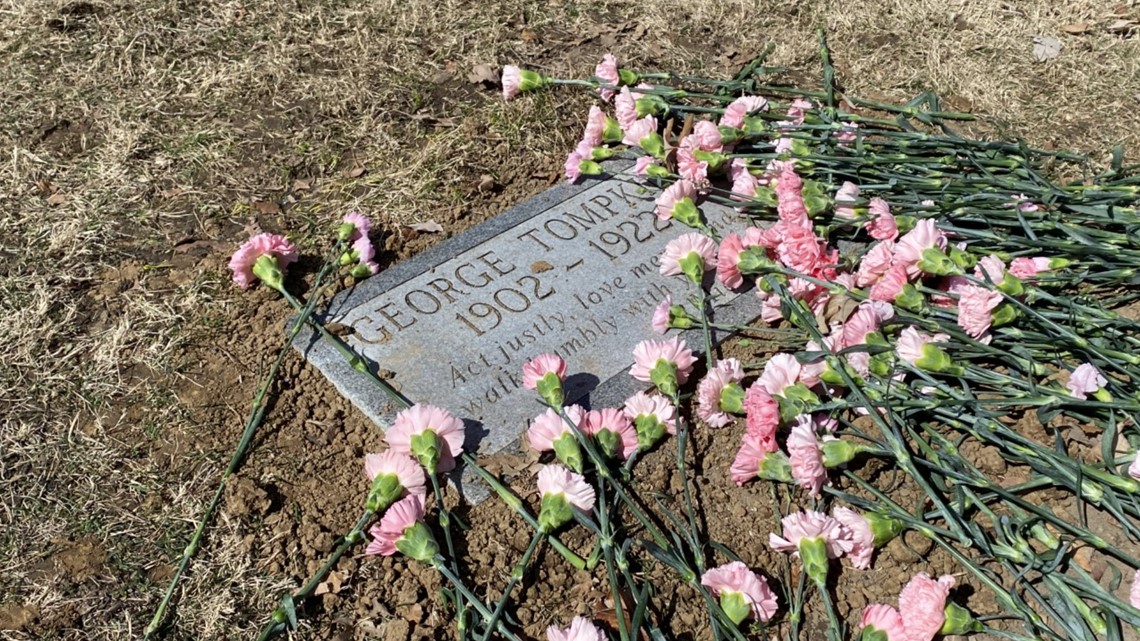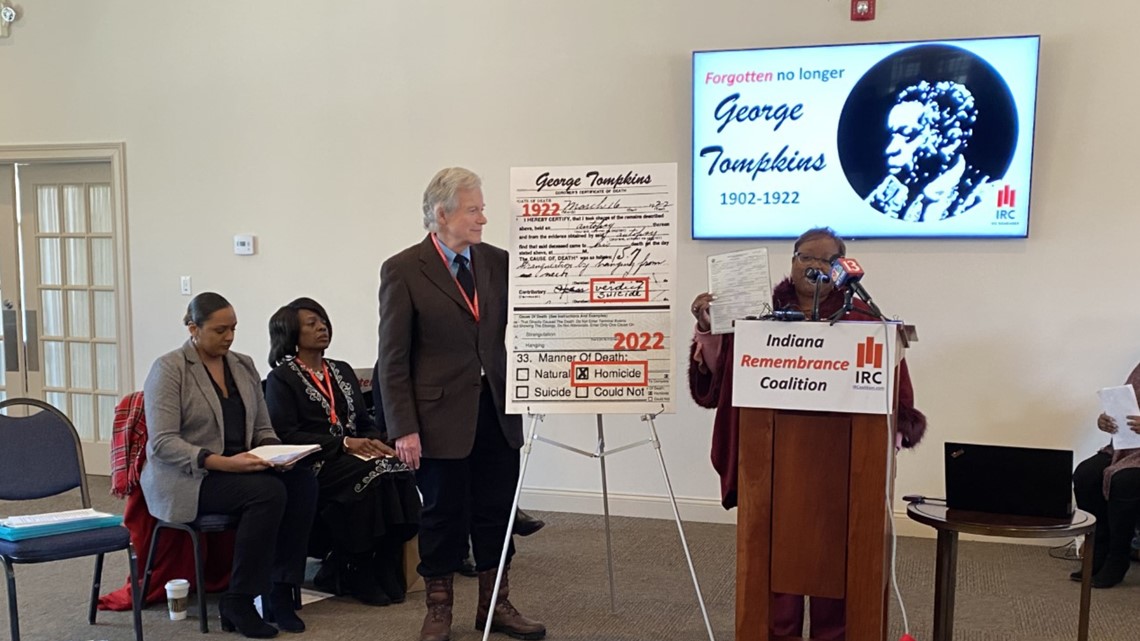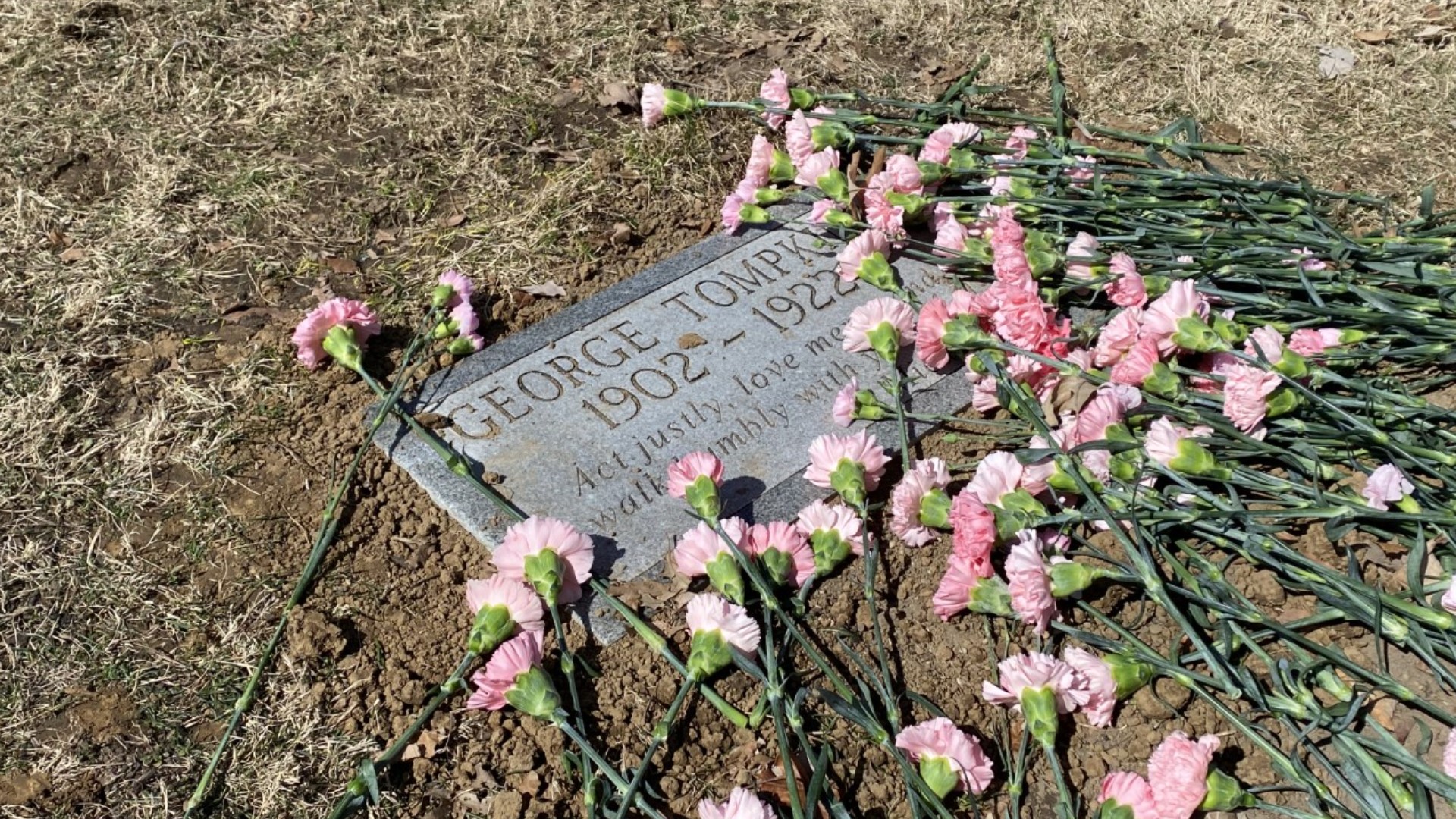INDIANAPOLIS — One hundred years ago this month, a man named George Tompkins was lynched in Indianapolis, his body found hanging in the woods. At the time, his death was ruled a suicide. Now, the community is coming together to honor Tompkins' memory by seeking justice for how he died.
"We are just here trying to bring justice, to the extent that we can, but also to start a dialogue," said Karen Christensen of the Indiana Remembrance Coalition.
Inside Floral Park Cemetery on the city's west side, dozens of people crowded around the newest headstone in the ground Saturday morning. One by one, they draped pink carnations on top of the stone set in place to honor a man killed in Indianapolis a century ago.
"In 1922, George Tompkins did not receive justice, neither in life nor in death," said Indianapolis Mayor Joe Hogsett.


Tompkins was found hanging in the woods at Cold Spring and Lafayette roads on March 16, 1922, with his hands tied behind his back. He was only 19 years old.
According to Dr. Rebecca Shrum, associate professor of history and director of public history programs at IUPUI, the county coroner said at the time, "the man could not have hanged himself." But when Tompkins' death certificate was finalized, the cause of death listed read suicide, not homicide.
“We will bring justice to something that was unconscionable to me; that 100 years ago something like this could have happened,” said Marion County Deputy Chief Coroner Alfie McGinty.
Now, one century later, McGinty has with her a new death certificate that lists Tompkins's death for what it was, murder.
"We are proud to be a part of this history some 100 years later and we will remember George Tompkins," McGinty said.


Christensen, who was behind helping give Tompkins justice all these years later, said by finally acknowledging what happened to Tompkins, they're hopeful they can help the community move forward on a larger path to justice, together.
"It might look a little differently but things like this happen today. And so if we don't understand what our history is about, we will repeat and we are repeating it. And therefore, we want to talk about this so we can stop the racial violence," Christensen said.
As of March 12, 2022, lynching is not considered a federal crime.
After more than 100 years of attempting to get legislation passed, just this week the Senate approved an anti-lynching bill that would make it a federal hate crime. President Joe Biden is expected to sign the bill into law.

